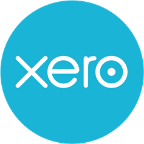How often have you gotten lost online while looking for something, only to end up on a website you had no intention of visiting? It has happened to each and every one of us. During the time spent online performing a search, you would have been subjected to pay-per-click ads from many brands, all of which were able to target you based on the words you typed into the search bar, as well as your location, your browsing history and a host of other factors. So, what made you click on a particular ad? Was it the eye-catching imagery? The clever use of words? Or simply because it was the highest-ranked result on Google? Let’s find out how other brands make use of pay–per–click (PPC) best practice to upstage their competition. In learning these pay-per-click tips, so can you!
What’s so special about PPC anyway?
PPC advertising, is one of the most interesting ways of promoting the brand is made possible by the internet. It gives you full control of how your budget is spent and helps you to meticulously calculate the results of your campaign. In the fast-paced world of digital marketing, being able to see if your campaign is producing the desired ROI in real-time is a huge benefit. PPC ads usually work like an auction, and this allows you as the advertiser to place a bid on every relevant search query to get your ad into the highest-ranking position on the search engine results page (SERP). There are many variables at play in an ad auction, but usually, if you outbid the competition, that gives your ad the best chance of being seen by your audience. Search ads are the most popular form of PPC advertising and allow you to meet potential customers who are actively searching for the products or services that you offer.
Google is by far the largest and most successful search engine to advertise on, with a market share of more than 75%. With such a large market share comes a lot of competition from advertisers. Everyone wants to be one step ahead of their competition.
- Focus on the negative
Doesn’t that sound strange? Adding negative keywords, on the other hand, filters out any irrelevant or unwanted traffic and prevents your ad from being delivered to an audience with no buying intent. Not only does it save you the nuisance of having to respond to unrelated queries, but most importantly, saves money and stretches your PPC budget by avoiding pointless and unnecessary clicks.
But wait, there’s more! negative keywords help your ads become more targeted and increase the number of relevant conversions, which helps your overall quality score. The better your quality score, the higher your ads will rank on the SERP. Quality over quantity, right?
- Identify,Changeand remove low performing keywords
When was the last time you gave your home a thorough spring cleaning? We mean, “Out with the old, and in with the new!” The same should be said for keywords. Keywords are the foundation of your PPC campaign, and they must be kept in good working order if you want to see results from your PPC ads. So, before you do anything else, make sure you have carried out proper keyword research.
Identify and remove the poorly performing keywords that have low impressions, clicks and conversions. Here’s how to identify and adjust the non-performing keywords:
- Impression count is low or non-existent since no one is looking for that keyword. It’s time to say good-by forever!
- Impressions but no clicks – The keyword will not be relevant to the audience’s quest. Make a few changes to make it more meaningful.
- Conversions but no clicks – There may not be a straightforward CTA (call-to-action), or they may not be directed to an appropriate landing page on your website. More advice on this will be given in point 4, so keep reading!
Having low or non-performing keywords damage your overall account performance, undercuts your campaign and wastes precious advertising spend.
- Manual bidding
If this is your first time setting up a PPC campaign, we recommend using automated bidding to get a feel for how it operates. Automatic bidding eliminates the guessing game that manual bidding entails, and it is much simpler. But if you have read this far that probably means you are looking for ways to up your game and leave your competition in the dust, not dilly-dally alongside them.
The advantages of manual bidding include:
- More control over the specific keywords you want to bid on.
- Make changes to the campaign immediately.
- React quickly if campaigns aren’t performing optimally.
Although manual bidding can be more time-consuming and challenging, it allows you complete freedom and control over your campaigns to achieve your desired results.
- Have a distinguished andoptimised landing page
We’ve all experienced the frustration of clicking on an ad and finding ourselves in a labyrinth of confusing, irrelevant material that is difficult to navigate. Attention: close page! To secure those conversions, you must have appropriate, insightful, sensitive, quick, and mobile-optimized landing pages for your PPC campaigns.
Keep in mind what your ad campaign is offering, and don’t leave the user feeling like they didn’t find the information they were promised. This damages trust and will only assist them in navigating away from your site.
Our PPC golden rule is to have distinct and optimised landing pages! If you don’t have a website and are unsure where to begin, do some research to determine if you should design one yourself or hire a developer. Start anywhere, no matter where you want to begin!
- Createa lot of advertising with the right words.
Remember, you don’t get a second chance to make a first impression. So, make sure your first impression is all that and a bag of chips. But how do you write the perfect ad? The simple answer is trial and error. Don’t create one version of your ad, create many.
Creating different versions helps you to test them to see which one is the most popular. When you test different iterations, you increase the chances that your ad will be seen by a larger audience. To entice the searcher to click on your ad, try different, attention-grabbing headlines and compelling details that better illustrate your offering. And hey presto! Now you’re starting to do a bit of A/B testing!
Make sure to optimise your ad copy. Here are some of our suggestions on how to do that. :
- Use engaging power words like “simple,” “free,” “popular,” “guaranteed.”
- Use words that evoke emotions such as “trust,” “happiness,” “belonging.”
- Try using problem-solving copy, such as “Have you been searching for the perfect vacuum? We’ve found one for you!”
- Understand the psychology of pricing. Instead of £15, make it £14.99.
- Include persuasive stats and figures, like percentages. This could be “70% of our stock has already been sold”, “We’ve already shipped 80% of our orders”.
Another pay-per-click tip is to use sensitive advertising. When you have a large number of ad copy variants, Google will test them and automatically create an ad for you based on success history and conversion potential. You now have more ad choices for optimising the success of your PPC campaign.
- Pay attention
Don’t just start a PPC campaign and then walk away, assuming your work is done. You’ll need to check in with your advertising on a regular basis to see how they’re doing so you can make changes before problems occur. Keep an eye on which campaigns are getting the most clicks and which ones are potentially blowing the budget and, most importantly, monitor the competition. After all, upstaging your competition is what it’s all about.
By paying regular close attention to your PPC account, you will learn to spot the subtle opportunities for optimisation. Attention to detail will go a long way to upstaging the competition.
- Seek professional assistance.
If you’ve followed all of these suggestions and still don’t believe your campaign is reaching its full potential, we recommend seeking professional assistance. It doesn’t have to be expensive, but a new pair of eyes will breathe new life and ideas into your campaign.
Remember that keeping ahead of the competition isn’t about getting more clicks, but about consistently getting more relevant clicks. With these pay-per-click tips, you are almost certain to have a good PPC campaign that will propel you ahead of your competitors.
Call FBS Digital today to find out more about our PPC and Google AdWords services: 0204 526 5195 or e-mail us at hello@finchleybusiness.co.uk






